Humans
Sign up for our newsletter
We summarize the week's scientific breakthroughs every Thursday.
-
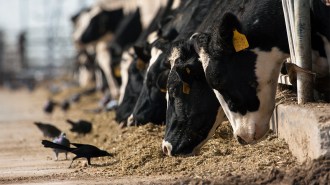 Health & Medicine
Health & MedicineBird flu has infected a person after spreading to cows. Here’s what to know
H5N1 has wreaked havoc on birds around the globe and occasionally made the jump to mammals, including cows. The risk to people remains low.
-
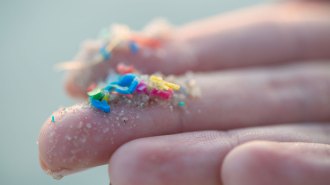 Health & Medicine
Health & MedicineA new study has linked microplastics to heart attacks and strokes. Here’s what we know
Patients with microplastics in their arteries were 4.5 times more likely to have a heart attack, stroke or die within the next three years.
By Meghan Rosen -
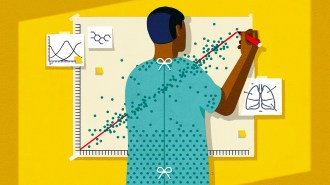 Health & Medicine
Health & MedicineHow patient-led research could speed up medical innovation
People with long COVID, ME/CFS and other chronic conditions are taking up science to find symptom relief and inspire new directions for professional scientists.
-
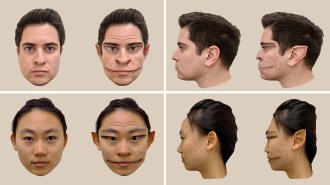 Health & Medicine
Health & MedicineHere’s what distorted faces can look like to people with prosopometamorphopsia
A patient with an unusual variation of the condition helped researchers visualize the demonic distortions he sees when looking at human faces.
By Anna Gibbs -
 Humans
HumansThese are the chemicals that give teens pungent body odor
Steroids and high levels of carboxylic acids in teenagers’ body odor give off a mix of pleasant and acrid scents.
By Skyler Ware -
 Psychology
PsychologyTimbre can affect what harmony is music to our ears
The acoustic qualities of instruments may have influenced variations in musical scales and preferred harmonies.
-
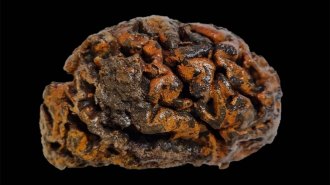 Archaeology
ArchaeologyHuman brains found at archaeological sites are surprisingly well-preserved
Analyzing a new archive of 4,400 human brains cited in the archaeological record reveals the organ’s unique chemistry might prevent decay.
-
 Science & Society
Science & SocietyNot all cultures value happiness over other aspects of well-being
Nordic countries topped the 2024 world happiness rankings. But culture dictates how people respond to surveys of happiness, a researcher argues.
By Sujata Gupta -
 Health & Medicine
Health & MedicineLong COVID brain fog may be due to damaged blood vessels in the brain
MRI scans of long COVID patients with brain fog suggest that the blood brain barrier may be leaky.
By Meghan Rosen -
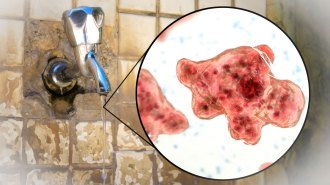 Health & Medicine
Health & MedicineDon’t use unsterilized tap water to rinse your sinuses. It may carry brain-eating amoebas
Two new studies document rare cases in which people who rinsed sinuses with unsterilized tap got infected with brain-eating amoebas.
-
 Health & Medicine
Health & MedicineThe U.S. now has a drug for severe frostbite. How does it work?
Iloprost has been shown to prevent the need to amputate frozen fingers and toes. It’s now approved for use to treat severe frostbite in the U.S.
-
 Health & Medicine
Health & MedicineFour years on, the COVID-19 pandemic has a long tail of grief
Researchers are studying the magnitude and impact that grief from the COVID-19 pandemic has had and will have for years to come.